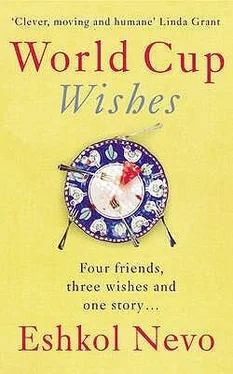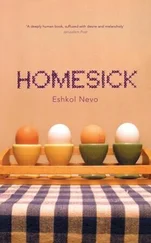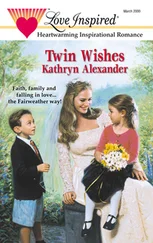Churchill and I were sure he wouldn’t call. You can’t stick to a strict schedule of obligations when you’re travel ling. Especially in India. But Amichai insisted that we give the guy a chance. So on the first Thursday in question, we watched the game together, and ten minutes after it was over, the phone rang.
And that’s how the ritual that lasted almost a year was established. Every first Thursday of the month, we got together to watch the Maccabi game. Amichai would buy peach-flavoured ice tea for me, Churchill would stop on the way and buy too many nuts, and I would bring one of my bottles of booze (a student who worked in the family alcohol-importing business paid for my translations in kind). We didn’t have weed because that was traditionally Ofir’s job, and now that he wasn’t here, no one had the energy to bother. Anyway, Amichai was tired of arguing with Ilana the Weeper about the nauseating smell, as she put it, that lingered in the house afterwards. I didn’t like the fact that rolling joints had turned from an underground act into a social obligation. And Churchill, even though he wouldn’t admit it, breathed a sigh of relief. Whenever we’d pass around a joint, he’d be torn between his strong desire to get high and his constant fear that the police might break in and catch him in the criminal act of smoking weed, thereby putting an end to his promising legal career.
During the game, we were divided into three camps: Amichai rooted for Maccabi because ‘they represent our country in Europe’, Churchill rooted against Maccabi because ‘they’re a monopoly and a complaint should be filed against them with the Anti-Trust Commission’, and I was indifferent. Basketball, unlike football, always seemed to me like a too-planned, too-polite, too-much-like-me game, and I could never get excited by it. So I drank my ice tea quietly, poured everyone a drink and waited for the broadcast to end. And for Ofir to call. Amichai had gone out and bought a phone with a speaker, partly so the three of us could talk to him together, but mainly so we could listen. Ofir had a tremendous need to share, to tell us everything, otherwise he ‘wouldn’t be sure that it happened’, and he didn’t care if the call cost him a fortune because ‘why did he work in advertising for seven years if not so he could enjoy the money’.
And so, conversation after conversation, month after month, we heard him change.
Funny. When a friend’s with you and you see him every day, the changes taking place in him are so small that you don’t even notice him changing. But from a distance –
It started with the rhythm of his speech, which became slower. More drawn out. As if every word had a profound meaning worth lingering over (along with the natural delay of a trans-oceanic call, it sometimes had a confusing effect: he would pause between every word. We were sure he’d finished his sentence, and stick in one of ours, which would reach him after a delay and get jumbled together with the continuation of his sentence, which reached us after a delay).
Then he started talking a lot about nature. Told us he’d spent two days sitting next to a lake in the Parvati Valley looking at a single lotus. Only when you’re close to nature, he said, can you grasp the true frequency of the world and connect to it. In Haifa, he added, at least we had the Carmel, the sea. Since we moved to Tel Aviv, we have no connection to the earth. The air. The trees. And moving away from nature, that’s against our nature. There’s something sick about big cities, he claimed. A kind of background noise that doesn’t let you hear your inner voice.
Oh come on, really, Ofir, Churchill said, unable to control himself, cities serve the human need to gather together. Besides, if cities were such a bad idea, they wouldn’t be such a success.
Even though I agreed with Churchill, we all went hiking on the Carmel that Saturday, with no apparent connection to that conversation. We walked down the Kelah riverbed to the stone bridge, then back up to Little Switzerland, something we hadn’t done in years. The soles of our shoes filled with pine-needle mud, we made up legends about how the strawberry tree got its name, we breathed in pine and oak air, and were amazed to find that autumn isn’t just a word, but a real season.
*
After another long season of wandering, Ofir settled in one place and decided to take part in a series of workshops en — titled ‘Touch Meditation’. The idea behind touch meditation, he explained, is that the best way to attain the greatest inner clarity is actually to devote yourself completely to giving to someone else, through the body.
We weren’t too excited.
We were sure that in one of our next conversations, he’d tell us that he’d left those workshops for totally different ones. Even back in high school, he was the one who talked us into leaving good parties for other, seemingly better ones by saying that his flat feet hurt him and it was hard for him to stand in one place for too long. And in the army, he routinely submitted transfer forms from his first day in a new unit, and that’s how, in three years, he managed to be a tank driver, an aerial photograph interpreter, an army meteorologist, a command-post gardener, an NCO in charge of religious soldiers and also an NCO in charge of women soldiers. He would never buy return bus or train tickets, despite the discount, because he thought that was too big a commitment. And he always did the same dance with women: two or three weeks of blazing passion, then annoying, nagging questions about whether there might be someone better past the shoulder of the girl he was dancing with. Over time, we developed an almost scientific method of predicting the changes in Ofir’s life: the minute he started talking enthusiastically about something or someone fantastic, we knew that he was about to leave it. Or her. We knew that the gushing words of praise were his final attempt to keep his flat feet on the ground before they sent him elsewhere.
*
My touch meditation teacher says I have natural talent! he told us proudly. Even the other people in the workshop say there’s electricity in my hands, that I just touch them — and they already feel better!!
Terrific, we told him. But we had our doubts. Of the four of us, Ofir was the least anchored. His hugs were always the most evasive, his handshakes the limpest. And if you reached out to pat him on the shoulder and came too close to his face, his whole body would instinctively draw back, as if you were about to slap him. Or as if someone had already slapped him in the past.
Ofir? An alternative therapist? Amichai protested. But that’s my dream! That’s my World Cup wish!
Forget it, don’t get worked up, he’ll drop it in a day or two, Churchill pronounced. And reminded us of his ‘360-degree theory’, according to which anyone who changes too drastically usually makes a full circle and comes back to himself. And you know something else? he added, I don’t buy into all that talk about the urban man who ‘doesn’t connect with his body’ either. What is that bullshit?
I agreed with him. But still, as if it had nothing to do with that, I went for a run on the beach promenade on Saturday morning after years of not running there. Just before Frishman Street, I saw a familiar, broad face running towards me. Run with me, Churchill said, running on the spot as he spoke. I was running on the spot too, panting pretty hard, and it frustrated me that he wasn’t. Even that came easily to him. Come on, he said, looking me straight in the eye, run with me.
We’d met quite a few times over the past few months, but our eyes never had. I thought of staring back at him till he lowered his glance. I thought, those are the eyes that blinked me the right answers on the university entrance exam (one blink, question one; two blinks, answer number two). I thought, those are the eyes that enticed Ya’ara into sitting in that café with him.
Читать дальше












